This year, on the edge of the roaring 1920s, saw the United States, led by Woodrow Wilson, commence World War One reparations. With only 1.9 billion people on the planet, the world was a lot smaller place than most modern people can fathom. The most popular names for newborns who contributed to that increase were John and Mary. JD Salinger, Jackie Robinson, Eva Peron, Liberace, Sr Edmund Hillary, and Pierre Trudeau were among the famous personalities born during this flurry of newborns. Unfortunately, as life’s circle dictates, some greats passed away this year: Teddy Roosevelt, Frank Baum, Henry Heinz, and Pierre Renoir.
The League of Nations, gasoline taxes, skydiving, and the signing of the Treaty of Versailles all happened during this 12-month period. Movies were only available in three hues at the time: black, white, and grey. People flocked to see Broken Blossoms, Different from the Others, and True Heart Susie on those vintage screens. Wineburg, Demian, The Moon and the Sixpence, and Anne’s House of Dreams were the most popular additions to people’s book collections.
The state of Oregon was the first to impose a gasoline tax. The first airmail delivery and the first parachute leap were both accomplished. In terms of women, these 365 days saw the first female member of the Democratic National Committee, the first female US distinguished service medal, and the first female bar students accepted to London’s Lincoln Inn.
On January 15th, tragedy struck Boston as over 2 million gallons of molasses inundated the city’s packed streets. While the founding of the League of Nations brought some regions of the world closer together, it also drove others apart as Turkey launched its war for independence and Lithuania declared independence. The first arc welder and the first prototype of the pop-up toaster were both invented this year.
Continue reading to learn more about the 1919 events. (January 01, 1919) (January 16, 1919) (February 05, 1919) (February 26, 1919) (June 14, 1919) (June 21, 1919) (July 11, 1919)
Event 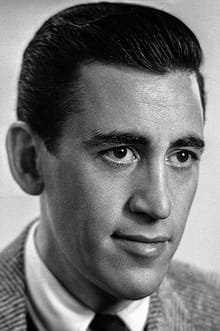
J.D. Salinger, an American author whose only novel, The Catcher in the Rye (1951), received widespread critical acclaim, was born.
photo source: wikimedia.org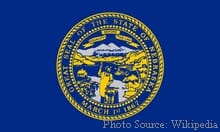
Nebraska becomes the 36th state to ratify the United States Constitution's Eighteenth Amendment. Prohibition is constitutionally mandated in the United States one year later, after three-quarters of the states approve the amendment. 
United Artists is founded by Charlie Chaplin, Mary Pickford, Douglas Fairbanks, and D. W. Griffith. 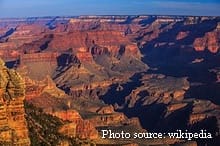
Grand Canyon National Park was established by the United States Congress in northwestern Arizona. 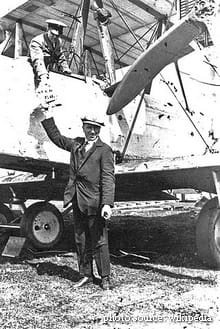
John Alcock and Arthur Whitten Brown take the first nonstop transatlantic flight from St. John's, Newfoundland. 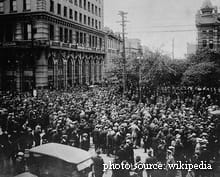
During the Winnipeg general strike, the Royal Canadian Mounted Police fire a volley into a throng of jobless war veterans, killing two. 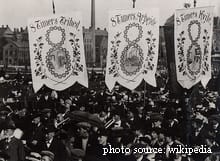
The eight-hour workday and free Sunday become legal in the Netherlands.





GIPHY App Key not set. Please check settings